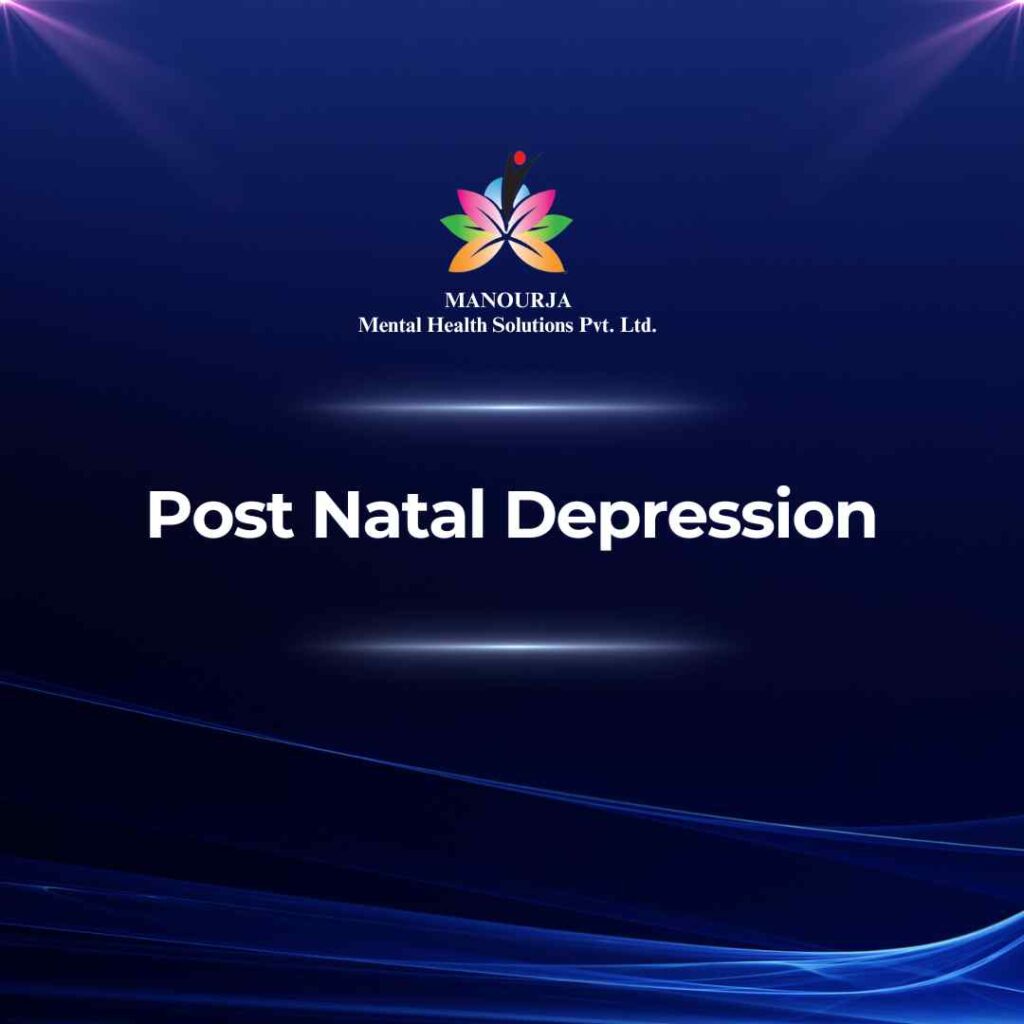Post Natal Depression

Post-natal depression (PND), also known as postpartum depression, is a type of mood disorder that can affect women after giving birth. It involves emotional, behavioral, and physical changes that can severely impact the mother’s ability to function and care for her newborn. Recognizing and treating post-natal depression is crucial as it affects not only the mother but also the well-being of the child and the family.
Meaning
Post-natal depression is characterized by significant depressive symptoms that occur shortly after childbirth, typically within the first year. It goes beyond what is commonly referred to as the “baby blues,” which is a more transient state of heightened emotions and tearfulness that usually resolves within a couple of weeks.
Characteristics
The symptoms of post-natal depression can vary in severity but generally include:
- Persistent sadness or low mood that doesn’t seem to lift.
- Loss of interest or pleasure in most or all normal activities, including interest in the newborn.
- Fatigue and exhaustion, even when sleep is possible.
- Feelings of worthlessness, guilt, or incompetence as a mother.
- Anxiety and panic attacks, often centered around the baby’s health or abilities in parenting.
- Difficulty bonding with the baby, feeling detached or indifferent.
- Changes in appetite
- Sleep disturbances, which are not just related to the baby’s routine.
- Poor concentration and indecisiveness.
- Thoughts of harming oneself or the baby, which are severe and require immediate medical attention.
Forms
While post-natal depression typically presents a uniform set of emotional and physical symptoms as described, the severity can vary. Some mothers might experience mild and manageable symptoms that are more akin to extended baby blues, while others might suffer from severe, disabling depression that requires intensive treatment.
Treatment
The treatment of post-natal depression involves a multi-faceted approach:
- Psychological therapy: Cognitive-behavioral therapy (CBT) and interpersonal therapy (IPT) are effective treatments. These therapies can help a new mother manage her thoughts and feelings and improve her coping strategies, particularly in how she relates to others, including her baby.
- Medication: Antidepressants may be prescribed, especially if the depression is moderate to severe. The decision to use medication is often made with consideration of breastfeeding, as many antidepressants are safe to use during this time.
- Support groups: These can provide emotional support and practical advice, which can be immensely helpful. Connecting with other mothers experiencing similar issues can alleviate feelings of isolation.
- Education and support from healthcare providers: Routine post-natal care should include screening for symptoms of depression. Healthcare providers can offer or direct to additional support services, including home visits and parenting classes.
- Self-care: Encouragement to take time for physical activity, pursue interests, and rest when possible is important. Family support is crucial in providing the mother with time for self-care.
It’s vital for family members and friends to recognize various signs of post-natal depression and encourage the mother to seek help, if needed. Early intervention can lead to a better outcome for both the mother and the baby.
At MANOURJA, we believe in the transformative power of counseling. Our experienced therapists offer a safe and supportive space where you can explore your thoughts, emotions, and challenges. Through personalized counselling sessions, we’ll work together to develop coping strategies, build resilience, and achieve lasting positive change. Discover the path to a healthier, happier you with MANOURJA counselling services.
MANOURJA Rehabilitation Services
At MANOURJA, we’re dedicated to helping you in rebuild your life, after difficult times. Our rehabilitation services focus on understanding what you need to move forward, whether you’re recovering from addiction, trauma, or any psychological – social challenges. We create personalized plans, that are all about helping you, regain your strength and find hope again. With a caring team by your side, you’ll have the support to make real progress and take steps toward a brighter, healthier future.
